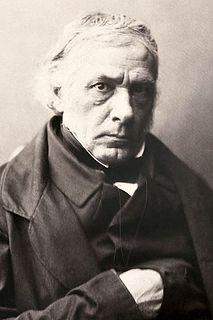A Quote by Aristotle
Now what is just and right is to be interpreted in the sense of 'what is equal'; and that which is right in the sense of being equal is to be considered with reference to the advantage of the state, and the common good of the citizens. And a citizen is one who shares in governing and being governed. He differs under different forms of government, but in the best state he is one who is able and willing to be governed and to govern with a view to the life of virtue.
Related Quotes
If the state cannot be entirely composed of good men, and yet each citizen is expected to do his own business well, and must therefore have virtue, still inasmuch as all the citizens cannot be alike, the virtue of the citizen and of the good man cannot coincide. All must have the virtue of the good citizen - thus, and thus only, can the state be perfect; but they will not have the virtue of a good man, unless we assume that in the good state all the citizens must be good.
The true forms of government, therefore, are those in which the one, or the few, or the many, govern with a view to the common interest; but governments which rule with a view to the private interest, whether of the one or of the few, or of the many, are perversions. For the members of a state, if they are truly citizens, ought to participate in its advantages.
It depends on the state itself to retain or abolish the principle of representation, because it depends on itself whether it will continue a member of the Union. To deny this right would be inconsistent with the principle on which all our political systems are founded, which is, that the people have in all cases, a right to determine how they will be governed. This right must be considered as an ingredient in the original composition of the general government, which, though not expressed, was mutually understood. . .
Puerto Rican independence movement wasn't just rooted in some sort of personal intransigence or some passionate Latino temperament. It was rooted in economic and political reality at the time. It also made sense since the founding principles of the United States are supposedly based on government by the consent of the governed, and the sense that all men are created equal.
All men have an equal right to the free development of their faculties ; they have an equal right to the impartial protection of that sovereign justice which is called the State ; but it is not true, it is against all tho laws of reason and equity, it is against the eternal nature of things, that the indolent man and the laborious man, the spendthrift and the economist, the imprudent and the wise, should obtain and enjoy an equal amount of goods.
The royalists of the economic order have conceded that political freedom was the business of the government, but they have maintained that economic slavery was nobody's business. They granted that the government could protect the citizen in his right to vote, but they denied that the government could do anything to protect the citizen in his right to work and his right to live. Today we stand committed to the proposition that freedom is no half-and-half affair. If the average citizen is guaranteed equal opportunity in the polling place, he must have equal opportunity in the market place.
The intelligent have a right over the ignorant, namely, the right of instructing them. The right punishment of one out of tune, isto make him play in tune; the fine which the good, refusing to govern, ought to pay, is, to be governed by a worse man; that his guards shall not handle gold and silver, but shall be instructed that there is gold and silver in their souls, which will make men willing to give them every thing which they need.






































